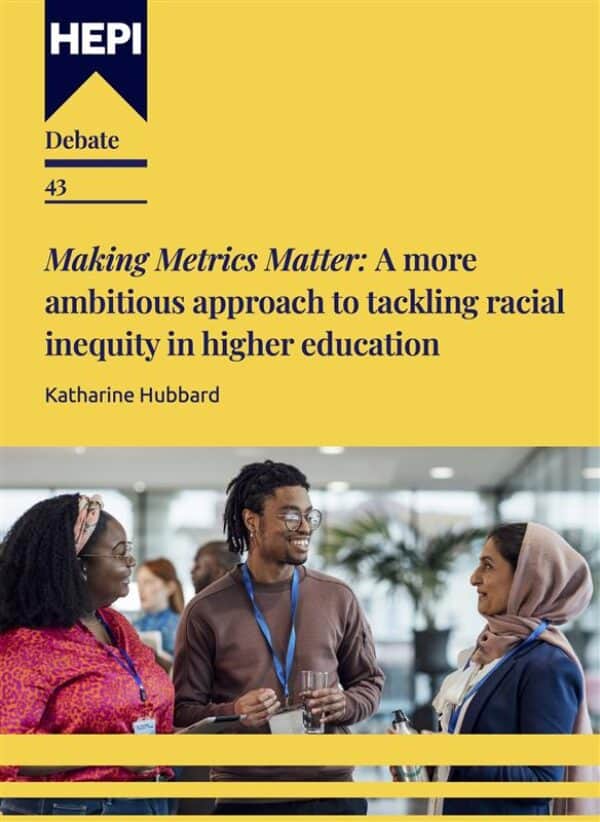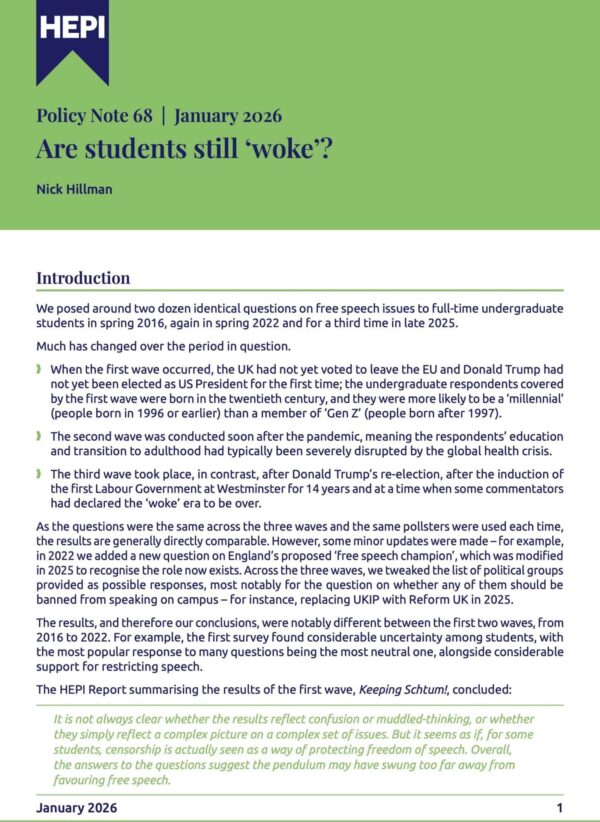Student Success and Working-Class Students: Whose Success is it Anyway?
This blog was kindly authored by Max Collins, a student at the University of Sheffield and Jon Down, Director of Development at Grit Breakthrough Programmes.
A lot is made of higher education being a driver of social mobility, a route for students from working-class backgrounds to achieve labour market success and higher earnings. But, at the same time, many argue that this view is at odds with how students think about the value of their education.
The student-led evaluation of the University of Sheffield Ambition Programme, in which Grit was a delivery partner, tells us that this is not how working-class students see it at all. Funded by the Law Family Charitable Foundation, the programme aims to support the success of young men from pre-16 through to graduation and beyond.
For some, being at university is less about personal success, more about what it means for their family. Students interviewed by the evaluation team talked about how:
success is less about my career or actual achievements. It’s more about my family… guiding my younger siblings into higher education.
For others it’s about taking the opportunities that run alongside the academic experience:
At the end of the day a degree is a piece of paper to get to you into a field of work but the opportunities are what makes a degree… for me it’s definitely the wider opportunities.
Personal growth and personal satisfaction are also significant indicators of success. Success is:
Proving that I could do it. My parents didn’t expect me to go to uni. I wasn’t ever a person who was getting straight As or was the smartest in the class… no one ever thought I was going to go into higher education. Even I didn’t.
And it comes with
the process and the journey, what you learn from different situations and experiences.
Much of this mirrors what employers say about the priorities of new graduates in the workplace. As one student said:
Success is more about the satisfaction you feel at the end of the day, your work-life balance and just feeling like you’re making a difference rather than the financial (although obviously the financial has an impact).
Underpinning the conventional, narrow take on what success should look like is a Social Mobility narrative stuck in deficit mode. It is one where working-class pupils at school need to be mended, to be fixed, so they can fit in at university and, ultimately, the graduate work place. They must conceal their identity to successfully navigate the world of Higher Education and a graduate career. It is a narrative that says working-class students need to change – economically, socially, culturally – if they are to succeed: https://wonkhe.com/blogs/working-class-students-feel-alienated-from-their-creative-arts-degrees-heres-how-to-help/.
But, once again, the evaluation of the Ambition programme suggests that this is not how working-class students see things. While the students freely acknowledge the struggles they have had with belonging, with imposter syndrome, with the stigma that comes with a working-class accent, they also describe making connections across the classes:
When you’re from a working-class background, you don’t really talk to people of different backgrounds, but the programme has provided a different approach. So now I speak with people who’ve had an upper-class background. I’ve got a lot of international student friends and I’ve learned a lot from them.
How they have found belonging:
I feel like I belong at uni more than I thought I would because in the programme I immediately met people with a similar background to me…
How they got past feelings of stigma:
I did feel a bit hesitant, especially coming from Rotherham… literally everyone I met sounds like the Queen’s English, that everyone’s quite posh except me… but once you get to know everyone, you change your opinion and perception of it.
Success for working-class students, then, does not have to mean a transformation of identity, rejecting who you are and where you have come from. It’s not about conforming to an alien aspiration. Success is a reframing, on each individual student’s own terms, of their expectations for themselves and their future lives. It can mean a myriad of different things, but success doesn’t have to mean leaving your old self, your family, your community behind.
In times when there are significant questions about whether young people will be as wealthy, healthy and happy as their parents, when there are increasing debates about the value of a university education, isn’t it time for universities to expand their definition of success to what feels right and true, rather than to what extent students conform to somebody else’s expectations?
So, for the working-class students on our programmes, success might be about the contribution they make to their community or the next generation (the relative values of the pay of teachers and academics has been eroded significantly in recent years but few would argue that these are not a socially valuable and important roles). It might be about their happiness, fulfilment, job satisfaction and quality of life. It might be about finding new ways to live in the world around them.
As the old economic certainties are called into question, universities need to find new ways of measuring success beyond those that focus on earning potential and social status. They could start by making more use of questions from Graduate Outcomes Survey around well being and satisfaction. And, rather than being simply a snapshot in time, the Survey could look at the broader graduate journey.
For example, alumni can give a much richer picture of what success means in the long term. Case studies and narratives of life journeys help us understand how success means different things at different times. Where success for working-class students means returning to or staying in the communities where they were brought up, instead of being part of the flight to the big cities, then we might capture the economic impact on the prosperity of a local area.
In our programmes, we have seen how, with the right mixture of support, challenge and encouragement, working-class students come to define success on their own terms. It becomes an experience rooted in their own selves. After all, whose success is it anyway?







Comments
Emilia Alexe says:
This is a very meaningful reflection — but it also highlights how far reality can be from these ideals. For mature or working-class students, the idea of “success” often depends on whether institutions truly respect their value for money and deliver what was promised. When a qualification turns out to have no real academic or professional value, and the system offers no clear route for complaint or redress, students become victims of the very structures meant to support them. Bureaucracy and institutional silence can erase years of effort and public funding, leaving people not only disillusioned, but trapped in a cycle where accountability is almost impossible.
Reply
Paul Wiltshire says:
9% extra tax for the next 40 years is quite a price to pay. It is unrealistic and irresponsible to think that you can just ignore this detrimental morale sapping debt burden. It Uni doesn’t get you a good job, then you really have to be pretty sure that you are not going to regret having your finances stuffed for these 3 years of study. Yet as a society, us ‘adults’ , are gaily telling our 18 year olds to sign up to HE in their droves, so where is our responsibility?
Reply
Les Ebdon says:
What an excellent piece of research showing that widening participation is not about allowing a few working class students to climb a ladder of aspiration to become middle class but rather about transforming a society than would define people by where they come from geographically or culturally and how they speak.
Reply
Jonathan Alltimes says:
No, success is the freedom to choose stable employment, a career, above average income for your age, and a satisfying occupation. The lost purpose of the universities was to protect and provide the guild of the college. Their function was to fashion the identity of students for employment, of which skills is an expression. I met prejudice towards me because of my accent and they could not not square it with my Edwardian prose. Who are the working class?
Reply
Add comment